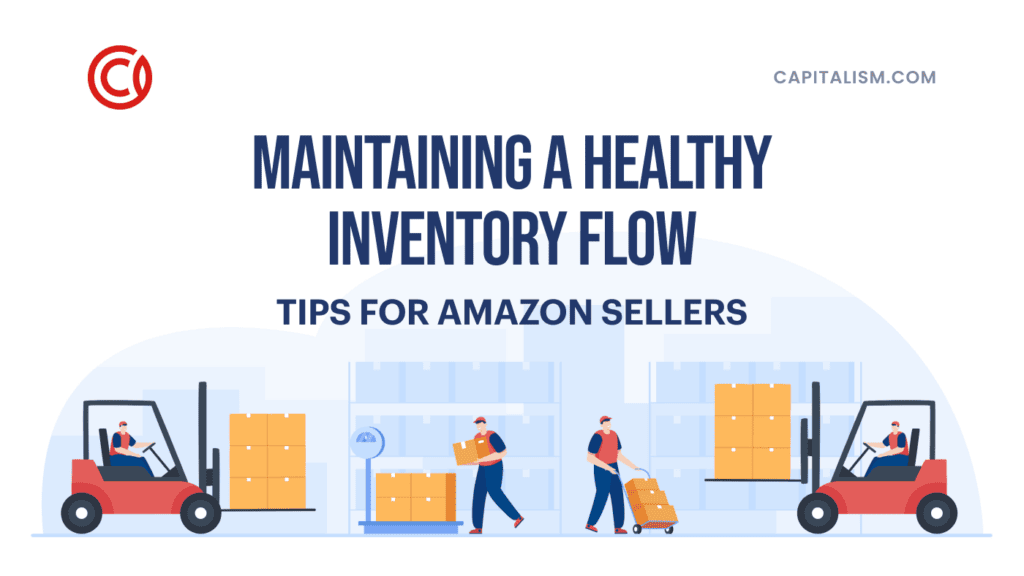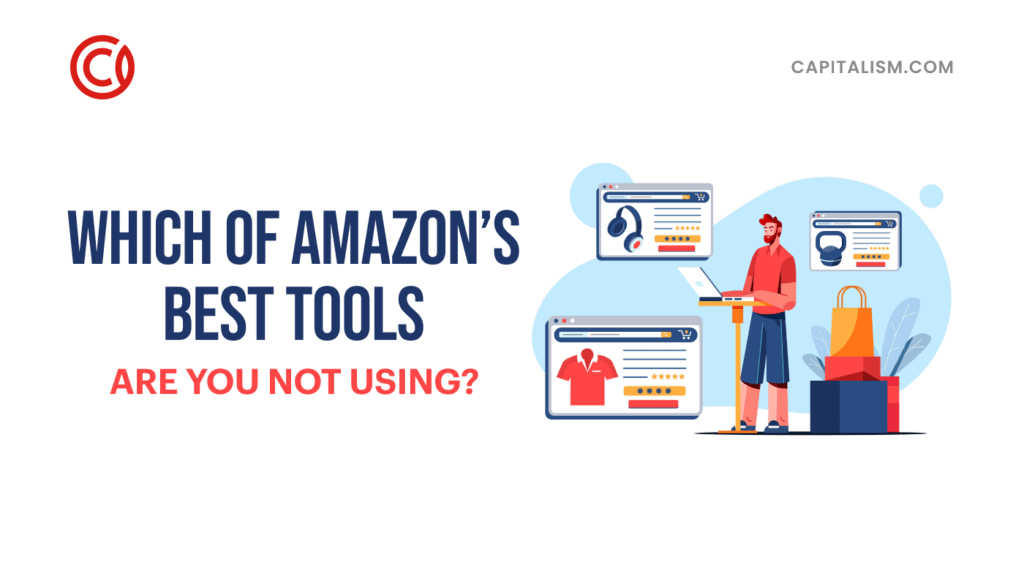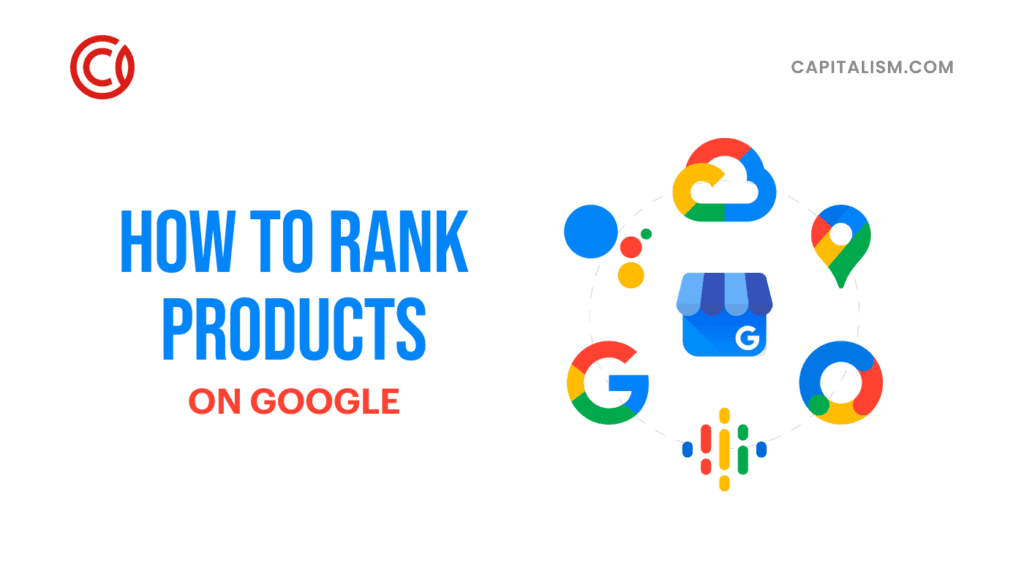Most people have thought of becoming an entrepreneur at some point. The idea of “firing your boss” and working for yourself has an understandable appeal. For most, though, entrepreneurship never advances past the dreaming stage.
There are many who argue that traditional jobs are dying and that we’ll all need to build our entrepreneurial skills. There’s not much downside to preparing yourself for that eventuality, whether it comes to fruition or not.
Whether you expect that we’ll all be entrepreneurs or not, you may be seriously considering making the leap from employee to business owner now. If so, you might be wondering just how to go about it. How, exactly, does one become an entrepreneur?
Being an entrepreneur is hard - are you cut out for it?
While it’s a dream for most everyone, actually being an entrepreneur isn’t suited to most people. It’s a tough thing to accept for a lot of us, but the vast majority of people will not make good business owners. There have been a great many well-paid employees who’ve given up those great jobs and ventured out on their own... only to find that they were much better off–much happier, too–working for someone else.
Before looking into the steps to becoming an entrepreneur, you might want to examine whether it’s really right for you. There’s no shame in working for others–we’d have very few successful businesses without employees to keep them running. If you have a skill that employers value, you can make a great living without ever leaving the comfort of your 9-to-5.
Reasons not to be an entrepreneur
Sure, there are plenty of great reasons to start a business of your own. Let’s consider for a moment, though, a few reasons you might be better suited to working for someone else.
- You have unreasonable expectations. I’m going to be blunt: Your first business has a high probability of failure. Your second one, too. Successful entrepreneurs are those who’ve experienced failure and tried again... and again... and again. If you are expecting instant success and you’re not one to take disappointment well, entrepreneurship is probably not right for you. That’s not to say you can’t hit a home run your first time at bat; but if you think you’ll get rich quick and you aren’t prepared to keep trying if it doesn’t happen, you will almost certainly be disappointed.
- You need a predictable income. If you aren’t ready to see your income vary drastically from month-to-month, keep your day job. Particularly in your new business’s startup phase, you can’t rely on regular pay. You may have a great month here and there, followed by months where you’re not sure how you’ll pay the bills. This is a predictable part of starting a business.
- You’re doing it for the freedom. While freedom is one of the great benefits of being your own boss, you’ll have to work your ass off to get it. If you’re expecting a 40-hour workweek or less, and you aren’t willing to work a lot more than that in the beginning, you will be miserable as an entrepreneur and you’ll likely give up before you’ve ever tasted that freedom.
- You aren’t comfortable with risk. This is arguably the biggest reason you won’t become a successful entrepreneur. Risk-taking and entrepreneurship are inseparable. If the thought of failing causes you to break out in a cold sweat, you’re not ready. Statistically, first-time entrepreneurs have about an 18% chance of success. It’s certainly possible that you’ll be among that group, but you should recognize that failure is a very real possibility.
- You need to be liked. You don’t have to be a jerk to be successful. You do, however, have to be willing to make decisions and stick to them, even if it pisses a few people off.
- You’re easily offended. Business owners need to develop a thick skin. You will get criticism from time-to-time–from customers, from employees, even from friends and family. It’s up to you how you’ll react, but regardless of your decision, taking it personally will only distract you. If you can look past your ego, you might even find some valuable feedback in the criticism.
- You’re a procrastinator. We all do it sometimes. But if you’re the type of person who needs constant reminders to get things done, you will struggle as an entrepreneur.
- You need to plan everything before taking action. Planning is essential in business. Everyone knows the cliché about “planning to fail,” and it’s not wrong. But if you’re the kind of person who won’t make a move until you have a plan for every contingency, your business may never even get off the ground. Napoleon Bonaparte said it well; “Take time to deliberate, but when the time for action has arrived, stop thinking and go in.”
- You’re afraid to leave your comfort zone. We all have a little bit of this trait, too. Take a good look at yourself and ask, “How comfortable am I being uncomfortable?” If trying a new entree at your favorite restaurant makes you nervous, starting a business could be more than you’re ready for.

Are you recognizing yourself in a few of those descriptions? It doesn’t mean that you have to give up on your dream of starting a business of your own. It does mean that you may not be ready right this moment; but if it’s something you really want, you can work on those issues. It might not be easy, but if you’re not willing to work on yourself, what makes you think you’ll put in the hard work necessary to build a thriving business?
Why should you be an entrepreneur?
So you’ve looked at the reasons not to, and you’re not dissuaded. Good. Now the upside–there are lots of great reasons you might love being an entrepreneur.
- You can do what you love. This is one popular reason entrepreneurs venture out on their own. They have a passion and have found a way to get paid for it. If what you love is not what you currently do for a living, entrepreneurship is a way you can change that.
- You get paid what you’re truly worth. If you’ve spent most of your adult life “working for the man,” you have almost certainly felt at some point that you’re not earning what you are worth. As an entrepreneur, though, what you earn is exactly what you’re worth. There’s another side to this–it’s not you who decides your worth. It’s the market. But you, as the owner of the business, are the one with the greatest control of how your business reacts to the market.
- You won’t get laid off or fired. Nobody is going to “let you go” because you made a bad decision. You won’t get “downsized.” You won’t be made redundant. Your “job security” depends on the success or failure of your business and nothing else.
- You control your schedule. That’s not to say you won’t need to put in a lot of hours. In the first year or so, you can expect to work a lot more hours than a typical employee. But you decide when. And those long hours will pay off down the line when your business is consistently profitable. At that point, you might even choose to work a bit less.
- Work where you want. You decide where your business will be located, or if it’ll even have a physical location at all. If it’s an online business, you have the freedom to change venues from day-to-day, if that’s what you want to do. Work from your kitchen table, from the coffee shop down the street, or be a “digital nomad,” working while you travel. It’s entirely up to you.
- You decide who you’ll work for and with. As an employee, you may have had to deal with customers or clients who you just didn’t like. When it’s your business, you can decide if a difficult customer is worth your time or not.
- You can make a difference in the world. Regardless of the business, entrepreneurs impact people’s lives. They provide jobs. They offer a needed product or service. They generate revenue and pay taxes. You might even choose to start a business with humanitarian goals. To make a living while benefiting others can be a reward in itself.
- You get a rush from taking risks, and you love it. Adrenaline junkies often make great entrepreneurs. The risks you take in business should be proportional to the potential payoff, so if you take risks haphazardly just for the thrill, you might need to keep a tight grip on the reigns; but if you know how to assess the risk vs. reward and taking a well-calculated chance excites you, entrepreneurship may be a great fit for you.
- There’s no income ceiling. Elon Musk, Jeff Bezos, and Mark Zuckerberg are all entrepreneurs. You might not start the next multi-billion-dollar business, but there’s nothing to say you can’t. You can grow your business as big as the market and your own drive will allow.
- You have a great idea. Have you ever seen a new business suddenly take off and remembered that you had the exact same idea, years ago? If you learned from that experience and you have a new idea for a product or service that the world needs, or an improvement on an existing one, that’s a good reason to consider getting into business.
- You just can’t imagine another path. You’ve known your whole life that you wanted to go into business for yourself. You spend your free time looking for business opportunities. You read blogs like this one, daily. Business success stories excite you. You will keep trying until you succeed, because in your mind there’s no other option. If this sounds like you, you absolutely should be an entrepreneur.
You know you want to be an entrepreneur–now how do you do it?
You’ve weighed the pros and cons, and you’re sure that entrepreneurship is the right path for you. So what steps do you need to take?
Step 1 – Decide what you want from your business
Unless you already have a passion that you plan to pursue, you’re going to need to decide what kind of business to start. I’m not referring to the specific industry yet; instead, let’s look at the various kinds of businesses. Online or brick-and-mortar? Manufacturing? Retail? Service? There are quite a few options.
To help you decide, think about what you’re hoping to get from your entrepreneurial career. Your hopes and expectations should guide you in choosing the right type of business. We’ve discussed good reasons for starting a business; now let’s look at what you want out of it.
Time flexibility
Maybe you have, or are planning to have, young children and you’d like to have time with them. You want to coach their little league teams, attend their dance recitals, or just be able to take them to the park or the beach when the weather’s nice.
You already understand that it’s going to take a lot of work to give you that free time. With that understanding, it can be a great reason to start a business; but you’ll want to rule out any business that requires you to work on a set schedule. Brick-and-mortar businesses with set hours can work, but they’re less than ideal. Such businesses are going to take a lot of time to get to the point where they’ll run well without you there.
Rather, you’d probably want to consider online businesses. They still require a lot of hours in the beginning, but the time of day that you put in those hours is largely up to you.
Building a legacy
Perhaps you hope to create a family business that will provide for you and your family now, and continue providing long after you’re gone. You’d like to leave your family business to your children and grandchildren. Of course, the big assumption here is that your progeny will want to continue running your business, but as long as you’re willing to accept the possibility that they won’t, you can build a business that gives them that option.
In this case, something with a physical location might be a better fit. It’s certainly not a requirement, but entrepreneurs wanting a legacy business often have a sense of pride tied to their place of business. Often they see their employees as extended family. The community where the business is located is important to them.
If this is your motivation, a business that serves your community is likely to be a great fit. Restaurants are a common choice. Service-based businesses can be great, too. Whatever the business, though, you will need to consider how you’ll compete with larger chains. Alternatively, you might consider joining a franchise.
Location independence
If your entrepreneurial dreams include traveling as you run your business–living as a so-called “digital nomad”–a physical location is out. Your business needs to be one that you can run from your laptop.
You’ll also need to keep time differences in mind. Even if you can work from anywhere, if you need to be available at specific times of day, that could limit the places you’ll want to visit. If your customers are all in the U.S., for example, visiting the other side of the world can mean that you need to work in the middle of the night.
There are ways to adapt–you might hire a “virtual assistant” to respond to customers while you’re sleeping. That does add an expense, and if you’re bootstrapping your business, every dollar counts. A better option might be to start a business that doesn’t require you to be available during business hours.
Retiring early
If your hope is to retire young, there are a few ways you might go about it. One option is to build a sellable business that will finance your retirement. That means building a brand.
Another path you might take is to create streams of passive income.
Again there are many ways an entrepreneur can go about this. Popular options include investing the profits from your business in income-producing investments, or building websites that produce income passively through affiliate commissions. Those are just a couple of examples–generating passive income is a subject that can fill multiple blogs itself. Regardless, if this is your goal, it should be a primary consideration when deciding the type of business you’ll start.
Step 2 – Brainstorm business ideas

Now that you’ve narrowed down your choices in terms of the kind of business, it’s time to think about the industry and the specific business idea. Remember that you will be spending a lot of time on this, so it’s important that you choose something you’ll enjoy.
With luck, you already have an industry in mind–if that’s the case, it’s still a good idea to explore alternatives. You might find something that is a better fit for your overall goals.
Here are a few questions you can ask to help guide you.
- What do you do now? Your current job is a good starting point. Look at your past jobs, too. In either case, you already know the business. You might have contacts. You’ve probably seen potential problems, and you may even have some ideas about how things can be done better.
- What do you know a lot about? Is there something that you know more about than anyone you know? Something people come to you when they have questions about it? If you have specialized knowledge, that can be a great jumping-off point for business ideas.
- What excites you? If there’s something you are passionate about, it’s worth exploring whether you can make a business of it. Not all hobbies make great businesses, but don’t be too quick to assume that yours won’t. It might take some creativity to come up with a unique business idea around your passion, but if you can do it, the payoff is a business that makes you look forward to work.
- Can you improve on an existing product or business model? Have you ever had the thought, “Why hasn’t anyone... ?” Or, “This widget would be so much better if...” Or, “I love this store, but I wish they...” Instead of waiting for them to do it, can you build a business that does it? Most successful business ideas are not brand new. Most are improvements on something that already exists.
- Is there a problem you can solve? What have you complained about recently? What complaints have you heard from others? If you brainstorm, you might be able to fix that problem, and that just might make a great business.
Step 3 – Research the market for your business
With a few business ideas in mind, you’ll want to be sure that there’s a strong market before you dive in.
This step is critical. You might have a great business idea, or you could have a flop, and without market research, you are guessing. While no amount of research will guarantee that your business is going to succeed, it can save you a lot of wasted time and money if you discover that nobody is interested in your idea.
Begin with researching the industry itself. What current trends will impact your business? How is the industry performing overall? The Bureau of Labor & Statistics is a good place to start looking at information about various industries. There are also market reports that you can purchase from research agencies like Forrester or Pew.
You’ll also want to find out what your potential customers think. Your business model will determine the methods you use here. Surveys and interviews can work well for many businesses. If you have a product that will be sold online, you can create a landing page to gauge interest. You might, for example, use pay-per-click (PPC) ads to drive traffic to your page, where you’ll offer a discount on your soon-to-be-available product in exchange for an email address; not a perfect measure, but a high response rate is a good indicator of interest.
Targeting your ads to a few different potential audiences and comparing the results can also help you hone in on the best market to target.
Step 4 – Get educated

If you’re venturing into a new industry for you, you’ll certainly have some things to learn. Even in a familiar industry, there are probably aspects of it that you don’t yet understand.
A good starting place is to read any industry-related journals. If there are consumer-focused publications related to the field, read those, too. Also find out if there are any legal issues you’ll need to deal with, such as licensing or certification requirements.
In some industries, you might be able to learn what you need to on your own. In others, you’ll need some training. If there are online courses available, they can be a great way to learn. Apprenticeships and mentors are great options and allow you to learn from those who are already successful in your chosen field. And of course, there’s the more traditional option of attending classes, whether that’s through a trade school or a college or university.
Remember, too, that you’ll probably be wearing many hats as you start your business. Even if you’re already an industry expert, you might not be as knowledgeable about important business functions like marketing or accounting. While it’s ideal to hire someone who is already an expert in those areas, it may not be an option in the beginning. You’re going to need at least a basic understanding of any business functions you’ll be handling yourself.
Do you need a degree?
There’s a common perception that most entrepreneurs are not college educated. The numbers tell a different story, though. More than 95% of entrepreneurs in high-growth industries have earned at least a bachelor’s degree.
We all know of success stories of college drop-outs, and if you never finished college you shouldn’t be discouraged. But if you’re in college now, recognize that those stories are the exceptions. Many of them, including Bill Gates and Mark Zuckerberg, were already running successful businesses before they dropped out. A degree isn’t essential, but it will almost certainly help.
Step 5 – Financing your business
Any business is going to require capital. There are many where the up-front investment is very small, but there are none that are entirely free. If you don’t already have the money you need, you’re going to have to figure out how to get it.
Don’t quit your job
In addition to capital for your business, you need to eat. Unless you’ve saved up enough to live on for the next six to twelve months and have good health insurance, keep your job until your business is consistently profitable.
When you start a business, keeping it going is your top priority. Business expenses get paid before you do. If they don’t, your business dies and you still don’t get paid.
Bootstrapping is your best option
Particularly if this will be your first foray into the world of entrepreneurship, getting a loan or soliciting venture capital should not be your first options. Bootstrapping a business isn’t easy, but it does mean that you aren’t starting out “in the hole.” Becoming “cash-flow positive” happens a lot faster if you can finance your startup yourself.
As you’re planning your new venture, start socking away money. Once you’ve decided on the business you’ll start, determine what it’s going to cost up front, and what it will cost to operate. You will need to cover those costs one way or another.
Knowing what it’s going to cost, look at your current income and your personal expenses. How much can you afford to set aside for your new business? How long will it take to put together enough to launch?
Look also at your time. Is your new business one that can be started part-time? If so, you may be able to rely on your current income while you build. That allows you to start sooner, but will most likely take longer to replace your current income and become a full-time entrepreneur.
Crowdfunding
 Crowdfunding is an appealing option if it works with your business model. Raising capital through sites like GoFundMe or Indiegogo has become a very popular option for entrepreneurs with great ideas.
Crowdfunding is an appealing option if it works with your business model. Raising capital through sites like GoFundMe or Indiegogo has become a very popular option for entrepreneurs with great ideas.
One of the biggest advantages is how quickly you can get started. You’ll also get a lot of valuable feedback from the people who you hope to sell to. And it can generate buzz about your product while you’re raising money. Compared to private investment, crowdfunding allows you to maintain complete control of your company.
Private investment
If you’re able to get others to invest in your business, you reduce your own risk. However, you also give up a fair degree of control over your business. You will be giving up equity in your company. It’s also going to take quite a bit of time and effort pitching potential investors.
Getting a loan
This is arguably the riskiest option. You will very likely need collateral, and that opens up the possibility of losing it. You might be able to get an SBA loan–one that is guaranteed by the Small Business Administration–and that could eliminate the collateral requirement, although that’s not always the case. On the upside, you maintain control of your company.
Step 6 – Launch!
It’s now time. You’ve done the homework and you’re ready to start your business. The hard work is nowhere near done, but you already know this. You’ve prepared as best as you can, and you’re ready to go to work.
Congratulations–you have now joined the exclusive group known as entrepreneurs. This business might be exactly what you hoped it would be, or it may flop completely–more likely, it will be somewhere in between. Regardless, you now know what it takes to be an entrepreneur, and no matter how well or how poorly this business performs, you know exactly what to do when you start the next one.
Here at Capitalism.com, we're on a mission to make one million millionaires by 2028. We'd love YOU to be one of them!
The first step is finding the business that's perfect for you to build. Watch this free video to find your million-dollar business idea.













